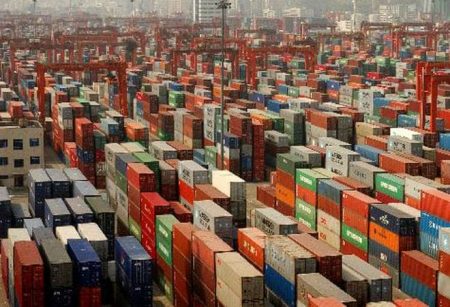Central and State Taxes and Levies Scheme 28/05/2019 – Posted in: Daily News – Tags: Export promotion scheme, sale tax
CENTRAL AND STATE TAXES AND LEVIES SCHEME
For: Preliminary & Mains
Topic covers: Advantages & Features, Significance
News Flash
The commerce ministry is considering a major export promotion scheme to ensure expeditious refund of central and state taxes and levies to boost shipments in the wake of global challenges at trade front.
The proposal is part of a 100-day action plan prepared by the ministry for the new government which will take office on May 30.
The ministry has also proposed to introduce a WTO compliant production-based support scheme to increase outbound shipments.
The ten-point action plan has also proposed the launch of a new five-year foreign trade policy (2020-25) on September 1 this year and promote shipments of the services sector.
Why the new scheme is needed?
A new export promotion scheme has become necessary as the existing merchandise exports for India (MEIS) scheme is being opposed by the US in the World Trade Organisation (WTO), stating it is not in compliance with global trade norms.
Highlights of Scheme
According to the proposal, the new scheme would ensure refund of all un-rebated central and state levies and taxes imposed on inputs that are consumed in exports of all sectors.
Un-rebated Levies
Major un-rebated levies are –
- State VAT/ central excise duty on fuel used in transportation, captive power, farm sector.
- Mandi tax.
- Duty of electricity.
- Stamp duty on export documents, purchases from unregistered dealers.
- Embedded CGST and compensation cess coal used in the production of electricity.
WTO compliant production-based support scheme
The department of commerce is consulting with all the concerned stakeholders to frame this scheme to promote high potential sectors like electronics, telecom, hi-tech engineering, medical devices, pharmaceuticals, and technical textiles.
New Export policy
- The current policy will end in March 2020.
- The policy provides guidelines for enhancing exports with the overall objective of pushing economic growth and generating employment.
- The new policy would include new export schemes while retaining important existing schemes.
- It will also include modern IT system with end to end IT enablement of all interfaces and processes of DGFT (directorate general of foreign trade) with exporters and other ministries/ agencies.
- The other proposals include resolution of WTO issues like on agriculture sector; steps to revive special economic zones (SEZs), implementation of agriculture export policy; disbursal of funds under Trade Infrastructure for Export Scheme and promotion of Government e-marketplace (GeM) portal for public procurement.
- For SEZs, the ministry has proposed measures such as uniformity in administrative and financial matters among all zones; an integrated online portal for processing new investment requests, easy operational and exit-related matters, procedural relaxations.
- Besides, the commerce ministry would consider allowing alternate sectors to invest in sector-specific SEZs, the flexibility of long term lease for developers and tenants, facility of sub-contracting for customers outside these zones and flexibility in usage of non-processing area by developers.
- The ministry has also planned to roll out national logistics policy, multi-modal logistic policy, integrated national logistics action plan, and logistics planning and performance management tool.
- Multi-Modal Transportation of Goods bill will be introduced in Parliament. The new bill will replace the existing MMTG Act, 1993. The new Bill introduces new concepts like regulation of self-regulatory agencies etc.
Source: Business Today
You can follow us on LinkedIn and for more updates related to UPSC IAS Preparation, Like our Facebook Page and subscribe our Diligent IAS Youtube Channel
Also Read Related Daily News

